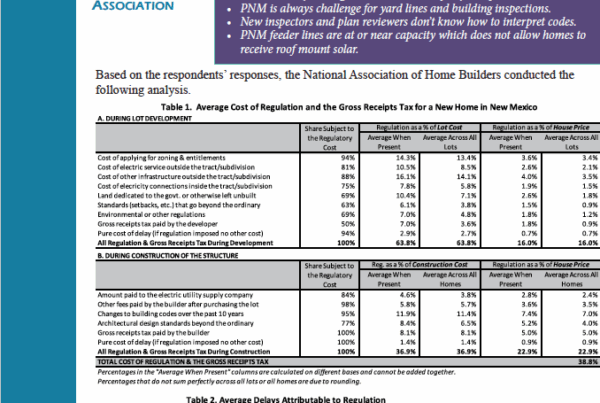Bills, Battles, and Building Blocks: How We Shaped the 2025 Session
Holding the Line: Read how New Mexico HBA Member Legislative Advocacy Protects and Promotes Homebuilding
2025 Was an Interesting Session for NMHBA Members
This year was unusual in terms of the number of Bills that were introduced to help our industry. Even though most of those Bills did not pass, it was just as notable that our lobbyist was able to amend one bill that was problematic and help knock several others off track so they didn’t pass either.
The biggest “win” for all businesses was the failure (again) of a flawed Paid Family Medical Leave Act. The success of the Structural Wood Grading Act will reveal itself in future years as local lumber mills ramp up production of locally-sourced products to ease the supply burden in the state, and while the Building Housing Communities Bill looks like it wouldn’t do much, it would have provided the opportunity for the Governor’s Housing Advisors to create best practices in zoning that will tie future housing funds to those communities that adopt those housing-friendly practices.
Read the entire Legislative Round Up by clicking below….

Some of the ideas that were part of the Maestas-Borrego “5-pack”: eliminating building height restrictions and allow development of duplexes and townhouses in single-family zoning; redevelopment code eminent domain; limiting who can file zoning decision appeals; no parking mandates; and requiring the state and local permitting departments to publish a list of the times frames in which permits have been finally acted upon are good ideas that NMHBA members can continue to lobby for at the local level to increase the supply of housing across all pricing levels. The eminent domain issue will have to come back in the next 60-day session.
We didn’t really think we could get our GRT Bill for the Housing Construction Tax Credit to credit labor costs on residential units passed the first time it was introduced, but with surprising support from 99.9% of the legislators who heard testimony on the Bill, we got our hopes up. Ultimately the Bill died simply because the money to make municipalities whole after the reduced GRT was more than the legislature had left to spend at the end. With the good reception it received this year and the fact it has budgetary impact, we may have an opportunity to introduce it again in 2026 and see if there is still enough oil and gas revenue to cover it. It has commonly taken new ideas like this several years to pass the legislature, and persistence generally pays off.




















